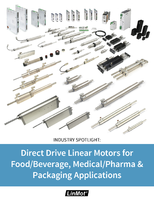Proposed Standard to cover issues in hedonic product testing.
Press Release Summary:
Proposed standard, ASTM WK22268, Guide for Two-Sample Acceptance and Preference Testing with Consumers, will be the first standard guide to cover issues considered in hedonic product testing. Standard will cover how to establish product’s hedonic status based on sensory attributes alone, rather than brand, positioning, imagery, or other non-sensory aspects. It will be used by people who conduct product testing on food as well as other consumer packaged products.
Original Press Release:
Proposed New ASTM Standard Will Aid in Understanding Methods to Determine Consumer Preferences
Knowing that potential customers like a product, and possibly prefer it to other products, is clearly a crucial piece of knowledge for a sensory science and marketing research professional of any company to have. Establishing consumer’s hedonic response to products is most often measured by using a nine-point liking scale or a method that determines preference or choice. A proposed new standard, ASTM WK22268, Guide for Two-Sample Acceptance and Preference Testing with Consumers, will be the first standard guide to cover issues considered in hedonic product testing.
“Acceptance and preference testing are cornerstone methods for the sensory science discipline,” says Lori Rothman, section manager, consumer science, Kraft Foods, and an ASTM member. “While there is variation as to how these tests are conducted, development of a basic primer, such as WK22268, that covers the fundamental issues which must be addressed when designing an acceptance or preference test, is needed.”
Once approved, the proposed standard will serve as a guide for less experienced sensory researchers as well as those with more experience. It will cover how to establish a product’s hedonic status based on sensory attributes alone, rather than brand, positioning, imagery or other non-sensory aspects. The guide will be used by a range of people who conduct product testing on food as well as other consumer packaged products.
“ASTM WK22268 will help companies determine the hedonic status of their products,” notes Rothman. “Sections of the guide address many of the decisions that researchers need to make when planning, conducting and analyzing results of acceptance and preference testing, with clear instruction as to best practice.”
A flowchart featured in the proposed standard catalogues the process for making acceptance and preference testing decisions. Rothman says that using the flowchart in conjunction with the various sections of ASTM WK22268 will provide ample consideration of the major factors that guide acceptance and preference testing.
ASTM WK22268 is being developed by Subcommittee E18.04 on Fundamentals of Sensory, part of ASTM International Committee E18 on Sensory Evaluation.
ASTM International welcomes participation in the development of its standards. For more information on becoming an ASTM member, visit www.astm.org/JOIN.
For more news in this sector, visit www.astm.org/sn-consumer or follow us on Twitter @ASTMProductsRec.
ASTM Committee E18 Next Meeting: Sept. 1516, 2014, in conjunction with the Society of Sensory Professionals 2014 conference, Tucson, Ariz.
Technical Contact:
Lori Rothman
Kraft Foods
Glenview, Ill.
Phone: 847-646-7318
lrothman@kraftfoods.com
ASTM Staff Contact:
Scott Orthey
Phone: 610-832-9730
sorthey@astm.org
ASTM PR Contact:
Barbara Schindler
Phone: 610-832-9603
bschindl@astm.org




